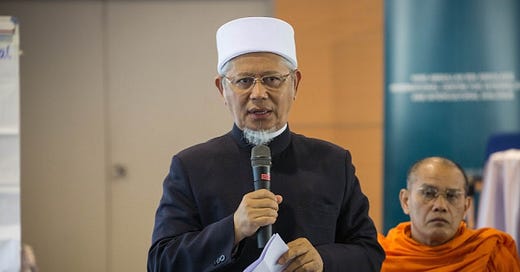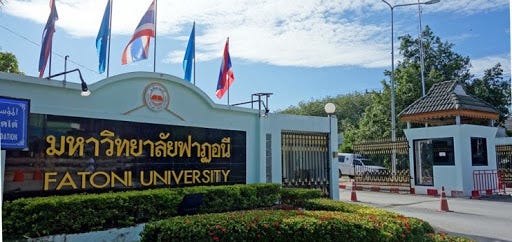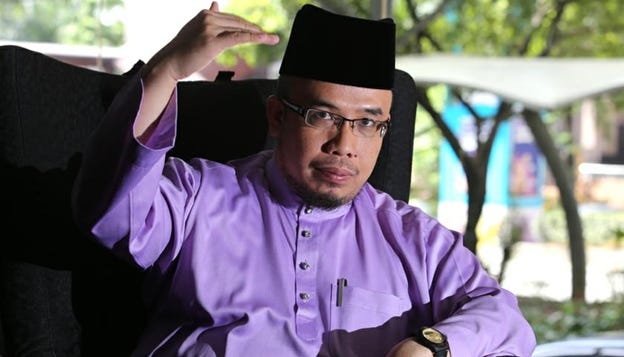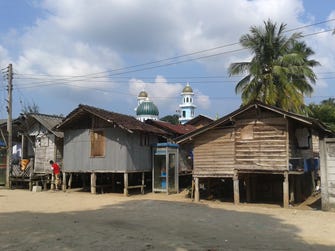Thailand’s Deep South Part 2: The Changing Nature of the Insurgency
Saudi Salafism rears its controversial head
The ideology behind the long-running ethnic conflict in Thailand’s deep south, which has taken the lives of an estimated 7,000 on both sides since it sparked into the open in 2002, is pivoting away from the centuries-old relatively laid-back Islam of the past towards a Salafi-Islamic narrative as Saudi Arabia continues to fund madrassas, or schools, and pondoks, or shelters for students, in the area along with other operations.
That has brought the Royal Thai Army, the first line against the conflict, into a quandary. Should religious schools be nurtured and supported as a line of defense against future recruiting of insurgents, or should they be considered threats to security? This is where the future of the deep south conflict will be redefined.
Islam within the three southern provinces – Patani, Yala, and Narathiwat – which is now facing change, has always been a traditional blend of Malay culture, language and an attachment to country, or Bangsa Patani. Thus, Patani Muslims, as they are called, exhibit an ethno-Islamic identity that is in stark contrast to Muslims within the rest of Thailand, who accept themselves as a minority and participate in the Thai socio-political arena. Malay ethnicity provides a great bearing upon world views.
Although there has been influence from the northern Malaysian state of Kelantan and to some extent from Indonesian scholars, local ulama have traditionally been most influential, not just as teachers of Islam but as upholders of the values and traditions of Patani culture. Culture and religion are two sides of the one coin, where being just a Muslim doesn’t guarantee acceptance within Malay society of the deep south.
That is most probably the grounding philosophy within the old guard of the largest insurgency group within the deep south, very much at the forefront of the 2002 revival of armed resistance, the Barisan Revolusi Nasional (BRN). The strengthening of Thai Islamic identity, inspiration from the Palestinian conflict and Afghani Talibanism, has altered the balance of the Patani-Muslim psyche. The old brigade opposes Salafism because they see the theology is tearing away the fabric of Patani-Muslim culture. They see Salafism as a Thai state-sponsored weapon against Malay ethno-Islamic identity.
The Saudi-educated cleric Ismail Lutfi Japakiya, who graduated in 1986 from the Islamic University of Imam Muhammad bin Saud, is widely seen as the leading Salafi reformist Muslim educator in Thailand today. He has been given credit – or blamed – for changing the courts of Islam in the Malay Muslim south. He returned from Saudi Arabia preaching a version of Salafism which altered the balance of Malay ethno-identity. The younger generation within the BRN is opposed to Ismail’s Salafi interpretations because they see it as supporting the Thai State.
Ismail founded Yala Islamic College in 1998, and later Fatoni University in 2004, with funding provided by Saudi Arabia and other Arab foundations. Although Ismail was once under suspicion by Thai authorities of being sympathetic to the insurgents, he was visited by the then crown prince and now Thai King Vajiralongkorn, who awarded the royal good housekeeping seal was awarded to Yala Islamic College. Both Yala Islamic College and Fatoni University now receive Thai government education funding.
Ismail’s Salafist doctrines encourage a dialogue between disaffected Patani Muslims and the Thai government. Ismail accepts the Thai monarch as the patron of all religions. The Thai government has cultivated and funded Ismail’s educational institutions as an alternative way for potential young insurgents. His movement is also supported by Mohd Asri Zianul Abidin, the Perlis Mufti, or legal export, through the Perlis Islamic Religious and Malay Customs Council (MAIPs). MAIPs donated THB20 million (US$61,180) from Zakat monies to fund the building of an Al Quran and Sunnah reading center at Fatoni University. MAIPs has also donated substantial funds to provincial Islamic Authorities within Southern Thailand for annual Salafi gatherings.
Mohd Asri Zianul Abidin, the Perlis Mufti
The shift away from ethno-Islamic towards Salafi-Islamist viewpoints is particularly the case with the younger generation, who have been encouraged to do so via both local and outside influence and encouragement. The message is about the search to bring back basic Islamic values and practices. This can be seen by an increase in Arabization of dress, language, the segregation of sexes, and a decrease in inter-religious communications, where many are becoming much more exclusionist. Previously adhered to ethno-Islamic practices are being abandoned.
Today, approximately 20 percent of Patani Muslims are Salafi leaning although Salafism is not homogenous and encompasses many different strands – puritan, fundamentalist, extremist, militant and jihadi. Ismail’s strand shuns violent separatism, but there are many other ustaz – religious teachers – who have been inspired by zealotry and militancy who are not on the authority’s radar, as they operate from unlicensed pondoks and schools.
The Krue Se Mosque incident, a raid in Pattani in which the Thai army killed 32 insurgents and lost the security offices, and the Tak Bai incident, in which Thai army soldiers piled scores of demonstrators onto a truck, killing 72 of them from suffocation and organ failure in 2006, helped Islamize the conflict and catalyzed jihadi organizations, like the Hikmat Allah Abadan (Abadae), which operate very secretly in isolation. Their hate for Thai Buddhism is a manifestation of extreme exclusionist Islam.
Just recently Thai officials talked up the success of direct Thai government-BRN discussions held in Kuala Lumpur. Presumably, BRN is represented by the old guard of the organization, which is in conflict with the younger hard-line insurgents in the field. The recent double-tap IED attack on the Southern Border Provinces Administration Center, set up in Yala specifically for Thai civilian and military authorities to hold dialogue on potential solutions to the ongoing conflict, is very symbolic. The old guard is seen to be selling out on the cause, which is being redefined through a Salafi-Islamic viewpoint.
Although Saudi money is pouring into the deep south to push an ideology, this hasn’t internationalized the conflict. The relationship of Thai deep south insurgents towards the mainstream ISIS-like terrorist groups is not to become a surrogate to the greater cause, but to enable ISIS to facilitate action in other theaters such as Malaysia, as was seen in an ISIS attack on a Kuala Lumpur nightclub in 2016, where it is believed deep south insurgents assisted in supplying arms.
Published in the Asia Sentinel 23rd March 2020
You can read Part 1: Cultural Evolution During the Conflict here







